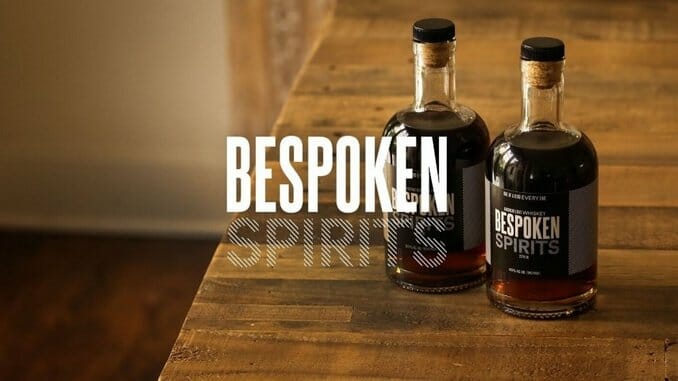Bespoken Spirits Claims to Produce Comparable “Whiskey” With No Need for Oak Barrels

For as long as spirits such as bourbon, rye whiskey, rum and scotch whisky have been aged in oak barrels, there have been attempts to subvert the time and care inherent to the aging process. There have been flirtations with artificial coloring and flavoring, to replicate the flavor lent over time by the wood. New barrel innovations have been developed over the years, including the use of smaller barrels or barrels filled with honeycombed oak panels, to increase surface area exposed to spirit and thus “speed up” maturation. Anything that small distilling companies have thought to try, they’ve tried—but the results have rarely been well received by those who love the flavor profile of aged spirits.
Now, a new company is giving it a go, using a new method that purports to be able to produce comparably “aged” spirits in only a few days. Bespoken Spirits is a Silicon Valley-based start-up, founded by materials scientist Martin Janousek and entrepreneur Stu Aaron, which produces “aged” spirits such as whiskey, rum and brandy through a combination of wood and pressure aging. Comparing their process to a “Nespresso machine on an industrial scale,” they expose neutral spirits to “micro staves” under pressure in order to infuse them with the flavors and aromatics typically found in aged spirits, and claim to never use “any additives for flavor or color.”
The below video gives one an idea of how the folks at Bespoken Spirits see themselves, disparaging the entire aged spirits industry as it exists today as “wasteful” and inefficient. To quote it directly: “Barrel aging is an antiquated process, practically unchanged for over 200 years. The barrels are slow, inconsistent, clumsy and wasteful.”
-

-

-

-

-

-

-

-

-

-

-

-

-

-

-

-

-

-

-

-

-

-

-

-

-

-

-

-

-

-

-

-

-

-

-

-

-

-

-

-








































